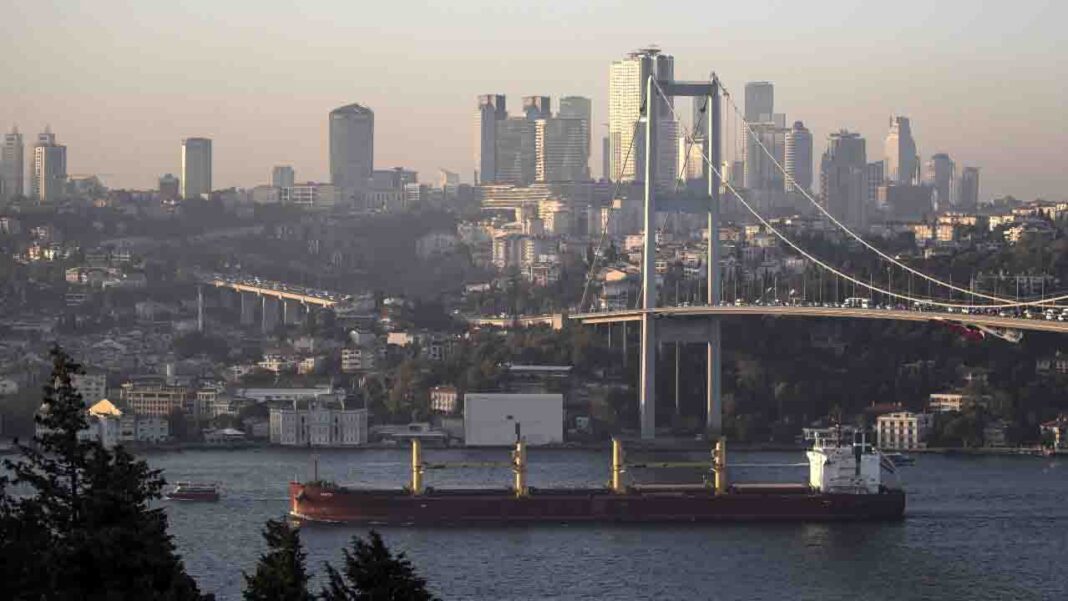(Commonwealth) _ This significant development in international trade and maritime affairs has drawn attention to the grave issue of illicit activities within the shipping industry. The sanctions imposed on the UK-registered shipowner underscore the urgency of combatting such transgressions to protect the integrity of global trade. By cracking down on systematic grain theft, authorities are sending a strong message that unlawful practices will not be tolerated.
This case serves as a wake-up call for the entire maritime community, emphasizing the need for stronger regulations and enforcement measures to ensure transparency, accountability, and ethical conduct. Only through collaborative efforts and the implementation of robust measures can the industry address these challenges, safeguard its reputation, and foster a secure and fair environment for international trade.
The UK-registered shipowner, whose identity remains undisclosed, stands accused of engaging in a systematic scheme to steal Russian grain. Investigations revealed that the company had been involved in unlawfully misrepresenting cargo quantities, misreporting destinations, and manipulating documentation to conceal their illicit activities. These actions not only undermined the integrity of international trade but also had severe repercussions on the Russian economy and the global grain market.
As a result of the shipowner’s involvement in this unlawful scheme, sanctions have been imposed by the relevant authorities. The specific sanctions may include financial penalties, restrictions on future maritime activities, and potential legal proceedings. Such punitive measures aim to serve as a deterrent against similar illicit activities in the shipping industry. Additionally, the shipowner’s reputation has been tarnished, leading to potential business repercussions, loss of credibility, and diminished trust among stakeholders.
The exposure of this ‘systematic’ grain theft case sheds light on broader issues within the shipping industry, including the need for enhanced regulations and enforcement mechanisms. This incident underscores the importance of implementing stringent controls to prevent illicit activities, such as cargo theft, smuggling, and document manipulation. Strengthening collaboration among international authorities, port authorities, and industry stakeholders is vital to creating a robust framework that can effectively combat such illicit practices.
Enhancing transparency and accountability in the maritime sector is crucial to prevent and deter unlawful activities. Shipowners and operators should be held responsible for the accuracy of cargo declarations and documentation. Implementing advanced technologies, such as blockchain and digital platforms, can help ensure the integrity of cargo records, making it harder for unscrupulous actors to engage in fraudulent activities. Furthermore, international cooperation and information sharing are pivotal in identifying and addressing illicit schemes that may involve multiple jurisdictions.
Cases like the systematic Russian grain theft have far-reaching consequences that extend beyond the immediate parties involved. The negative impact on the reputation of the entire shipping industry can erode investor confidence and undermine trust among trading partners. To mitigate such risks, it is imperative for stakeholders such as governments, industry associations, and financial institutions to collaborate actively. Strengthening due diligence procedures, conducting thorough background checks on shipowners and operators, and promoting responsible business conduct are crucial steps in safeguarding the industry’s reputation. By fostering ethical practices and discouraging illicit activities, stakeholders can maintain investor trust and uphold the integrity of the shipping industry as a whole.
The imposition of sanctions on a UK-registered shipowner for their involvement in ‘systematic’ Russian grain theft serves as a wake-up call for the shipping industry. This incident highlights the urgent need for stronger regulations, improved enforcement mechanisms, and increased transparency and accountability within the maritime sector. Collaborative efforts from international authorities, industry stakeholders, and technological advancements are crucial in combating illicit activities and safeguarding the integrity of global trade. By addressing these systemic issues, the shipping industry can uphold its reputation, regain investor confidence, and ensure a fair and secure environment for international commerce.







